to establish a proper agreement (Keeptwo, 2021) will be able to experience "...[restoration of] historically significant sites…; contributions to the social and cultural objectives of [their] communities; and a foundation for economic development for the region" (Algonquin Land Claim). This is exciting news, yet as inspiring as it all sounds, we must recognize that as settlers, we have much work to do to decolonize our own approaches to teaching and learning, and to share this with our membership. Much of this work will be rooted in listening, in feeling, in honoring the land and its people, and co-creating welcoming and safe spaces, with our Indigenous partners. Our work will also involve engaging with various mathematical perspectives that we might all "circulate together" (Wiseman et al, 2017). We are thankful for the examples of Indigenous stewardship--that is, of the land and of relationships within and across peoples--that we have the opportunity to learn and work as a Council, and to provide leadership for our colleagues in Math Education. Niá:wen, Miigwech, Nakurmiik, Thank you. New Web Resource
Artefacts of Learning & LeadershipBelow, you will find examples of Land Acknowledgements we have constructed and used to open our meetings and events. Notably, each one is of considerable length. Our purpose is simple, yet incredibly powerful and so important. As a chapter, we have decided that we will research and embed historical perspectives, stories, and examples of how we can encourage our members to counter oppressive narratives, thus making new spaces and opportunities for our Chapter to truly make good on its vision: Making teaching and learning mathematics accessible for all An incredibly important aspect to achieving this vision must and will involve partnerships and collaborations with First Peoples groups in the Ottawa Zone. If you have questions or comments, do feel free to reach out to our Executive. As a courtesy, we also ask that you innovate from any insights drawn from our activities and writings: it's important that we each do the work of understanding ways of knowing, being, and doing for ourselves. If you are interested in using any part of an Acknowledgment or other resource, please reach out to us using the contact form provided. Acknowledgements: Sources: Keeptwo, S. (2021). We all go back to the land: The who, why, and how of land acknowledgements. Brush Education Inc.
The Algonquin Land Claim. ontario.ca. (n.d.). Retrieved May 17, 2022, from https://www.ontario.ca/page/algonquin-land-claim Wiseman, D., Glanfield, F., & Lunney Borden, L. (2017, September 11). How we are coming to know: Report. Show Me Your Math. Retrieved May 6, 2022, from https://showmeyourmath.ca/comingtoknow/report/
0 Comments
Our Impact!
What else? Membership has grown through the study; new relationships have been built; continued interest in the study and chapter’s activities have been expressed; and opportunities for members to join Council have been created and shared.
Looking Ahead: Fall 2021
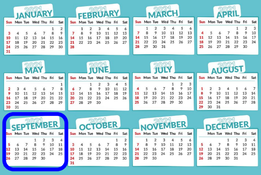
Although it was not possible, at this time, to study all chapters of the book, many members have expressed a desire to continue working with Building Thinking Classrooms during the 2021-22 school year. And we’ll be doing our very best to meet our members’ professional learning needs!
What to expect? With more educators exploring this pedagogy in their own practices, we'll be enriching our shared time with practical findings from the field--in the #OttawaZone!
In the meantime, we'd like to offer up some encouragement! And a sample of resources as insight to some of the ‘how’ and ‘what’ of the study’s organization, facilitation, and degree of participation.
Encouragement!
Let's Connect!
On behalf of the O34ME Council and Professional Learning Committee, we wish you all the very best for a strong finish to the year and for a relaxing Summer. Contact: Need to connect with O34ME? Use our Contact Form to ask questions, share concerns, and/or provide suggestions.
Yours in #mathedu
Chris Stewart 2019-22 O34ME President
The evening began with introductions by this year's Chapter President, Chris Stewart, followed by an inspiring address by Dr. Marian Small, with networking between educators for the remainder of the evening. If you were unable to take part in this event, the introductory address (and slideshow) and highlights from Dr. Small's address are included in the remainder of this post.
President's Welcome Address & Slideshow
*Highlights from Dr. Small
Key Messages for Math Educators
Dr. Small also shared her perspectives on how educators might best navigate tensions associated with political unrest in Education. Essentially, leading in ways that promote conversation about the key issues is how we'll move forward to better meeting students' needs. Speaking clearly, acting respectfully, and being enlightened (educating oneself) are a few criteria for successful conversations with various shareholders in Math Education. To clarify one of these issues--"Back-to-Basics"--Dr. Small reminded the audience that students are performing well on knowledge-related items on provincial testing; where students are falling down is in relation to thinking and application problems. What this means is that we first need to distinguish and understand the differences between knowledge questions and those that promote student thinking. The latter type of question can result in deepened student understanding while helping students build the types of skills critical for employment and citizenship in today's world. *NOTE: The highlights presented are not directly quoted; rather, they paraphrase the key aspects of Dr. Small's message to attendees.
Slideshow
Connecting to Our Guiding Principles
During Chris' address to attendees, he mentioned that every decision made on behalf of Membership is done through the lens of the Chapter's Guiding Principles. Below are links to examples of how events, like the Fall Social, demonstrate our commitment to supporting our Membership and the greater, Math Community.
Seeking Alignment to Our Strategic Priorities
|
O34ME - BlogFeaturing posts that provide visitors an opportunity to engage in meaningful reflections on practice, as well as connecting research with pedagogical practice Archives
May 2022
Categories
All
Disclaimer:
The views expressed or implied on this website, unless otherwise noted, should not be interpreted as official positions of OAME and/or its affiliates and O34ME. |
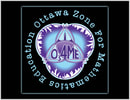
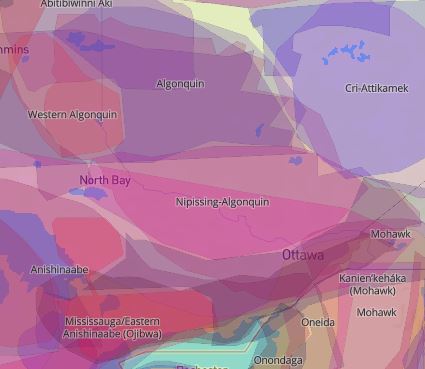

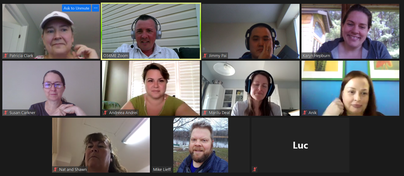
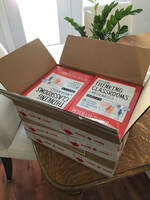
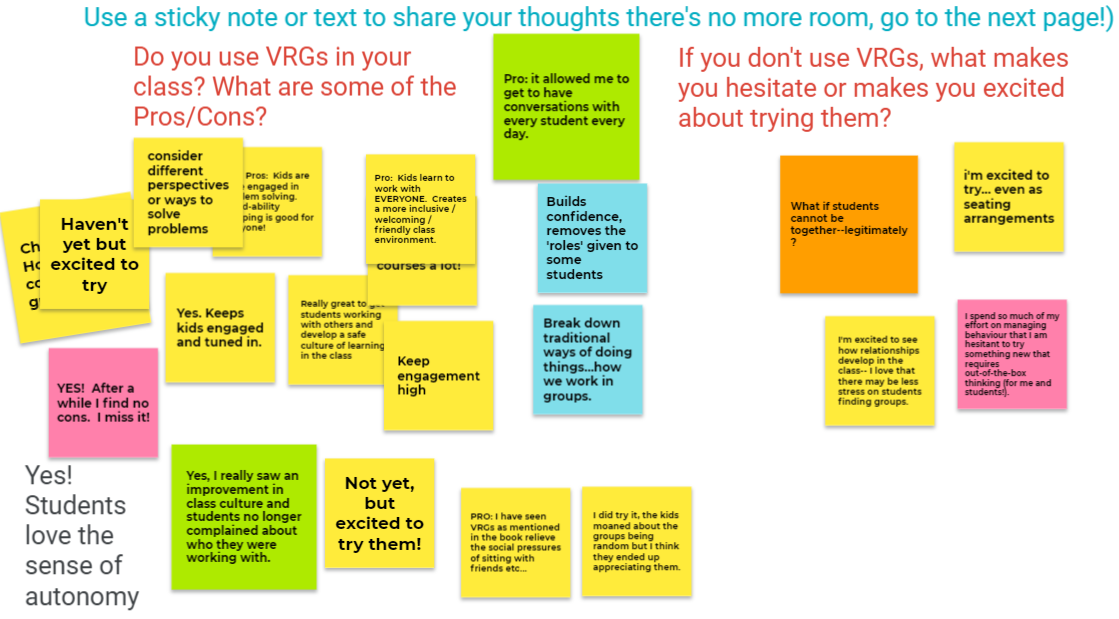
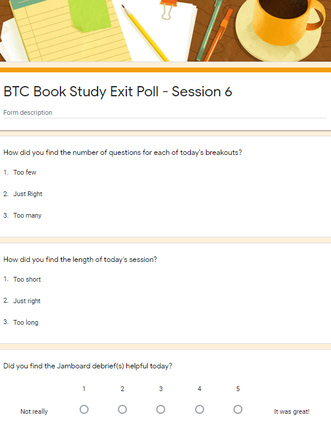
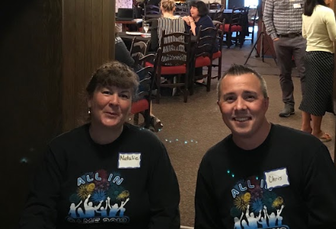
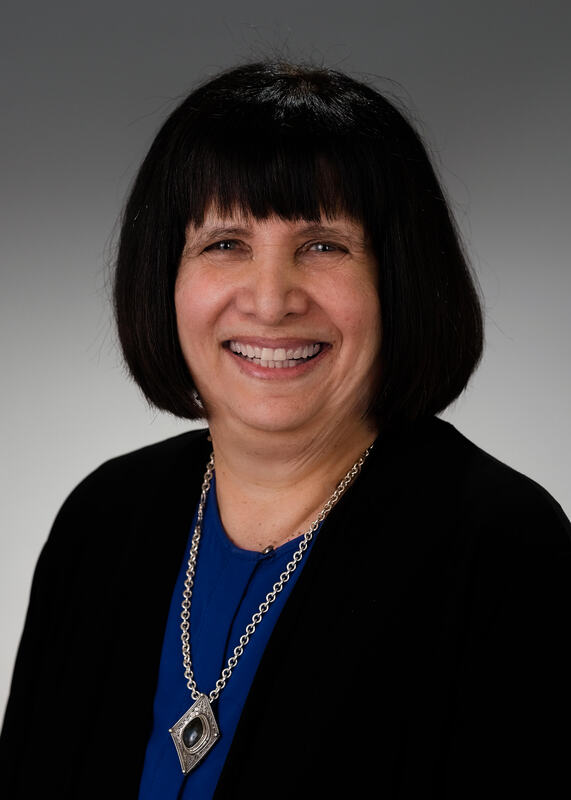
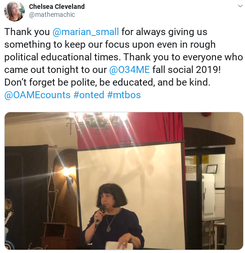
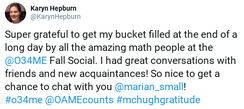
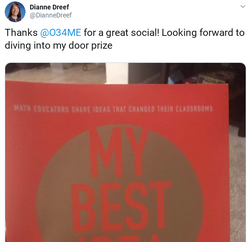
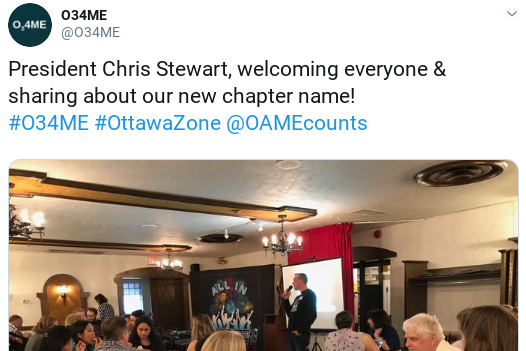
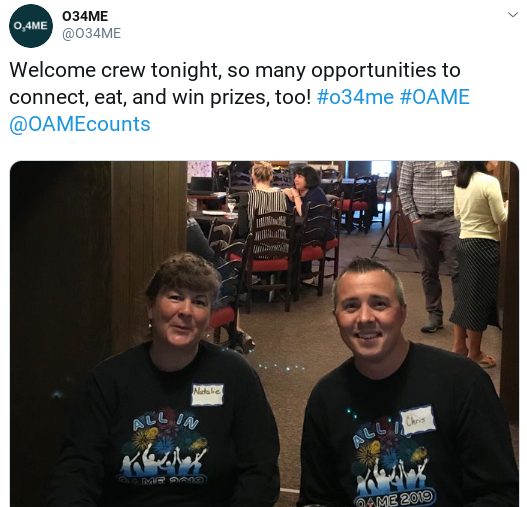
 RSS Feed
RSS Feed
